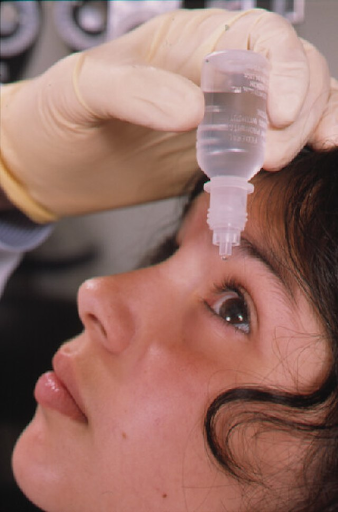Types of uveitis
The type of uveitis depends on which part of the eye is inflamed.
- Anterior uveitis, often referred to as iritis, is a common type of uveitis that occurs in the front of the eye, affecting the iris. The eye disease is commonly found in those who are healthy but it can be linked to some autoimmune diseases such as multiple sclerosis.
- Intermediate uveitis occurs in the middle of the eye, affecting the vitreous (gel-like fluid that fills the eye) and peripheral retina. It is possible for the eye disease to be an isolated incident, but it’s also possible that it’s linked to the development of multiple sclerosis or sarcoidosis.
- Posterior uveitis,also known as choroiditis, occurs in the back of the eye, affecting the choroid (the choroid delivers blood to the back of the eye). It’s possible that symptoms may gradually grow and linger for a number of years. In most cases, a virus, parasite or fungus is the potential cause in an individual’s infection. Individuals who suffer from autoimmune diseases are also susceptible to developing the eye disease.
- Panuveitis occurs in all parts of the eye, affecting all layers of the uvea from the front to the back of your eye. Individuals who suffer from this eye disease may have a combination of symptoms and features all three types of uveitis which are anterior, intermediate and posterior uveitis.
What causes uveitis?
Uveitis regularly affects individuals who appear to be in otherwise good health and its root cause is often unknown. In certain cases, uveitis can be traced back to conditions such as autoimmune disorders or infections caused by bacteria or viruses.
Some autoimmune diseases that could be associated with uveitis are:
- Crohn’s disease
- Ulcerative colitis
- Arthritis
- Kawasaki disease
- Psoriasis
- Ankylosing spondylitis
- Rheumatoid arthritis
- Sarcoidosis
Infections that may cause uveitis include:
- Aids
- Herpes
- Tuberculosis
- Syphilis
- Toxoplasmosis
- West Nile virus
- Histoplasmosis
- CMV Retinitis
Other possible causes include the following:
- Bruising
- Trauma
- Injury
- Exposure to a toxin(s) that enters the eye
Symptoms of uveitis
Symptoms of uveitis may include:
- Eye pain
- Blurred vision
- Light sensitivity
- Eye redness
- Decreased vision
- Dark, floating spots in your field of vision
Treatment for uveitis
Treatment for uveitis depends on the cause and type of uveitis. If you have other health conditions that cause uveitis, treatment may focus on the specific condition to eliminate the uveitis. Essentially, some form of treatment is required to control the inflammation.
The following are some treatment and management options that are available for each type of uveitis:
-
Anterior uveitis - Steroid eye drops that reduce inflammation or irritation, eye drops that dilate the pupil and reduce pain, and wearing dark glasses.
-
Intermediate uveitis - Injections around the eye, prescribed steroids taken orally and visits to additional experts to treat infections or autoimmune diseases. Antibiotics are typically used to treat a body-wide bacterial infection.
-
Posterior uveitis - Prescribed steroids to be taken orally and steroid eye drops. Patients with severe uveitis may need medications that suppress the immune system.
You can work with your doctor to find the right treatments for you.
Complications of uveitis
Uveitis can lead to other significant problems if it is not treated promptly. The following are some of the outcomes that could occur:
- Retinal swelling (macular edema)
- Retinal detachment
- Cataracts
- Permanent eyesight loss
- Optic nerve injury
- Retina scarring
- Glaucoma
To lower the possibility of vision loss which are often irreversible, early detection of uveitis is essential. Our highly skilled team of ophthalmologists at Eyecentric, based in Bukit Tinggi Medical Centre (BTMC), delivers outstanding clinical treatments and medical diagnostics.





